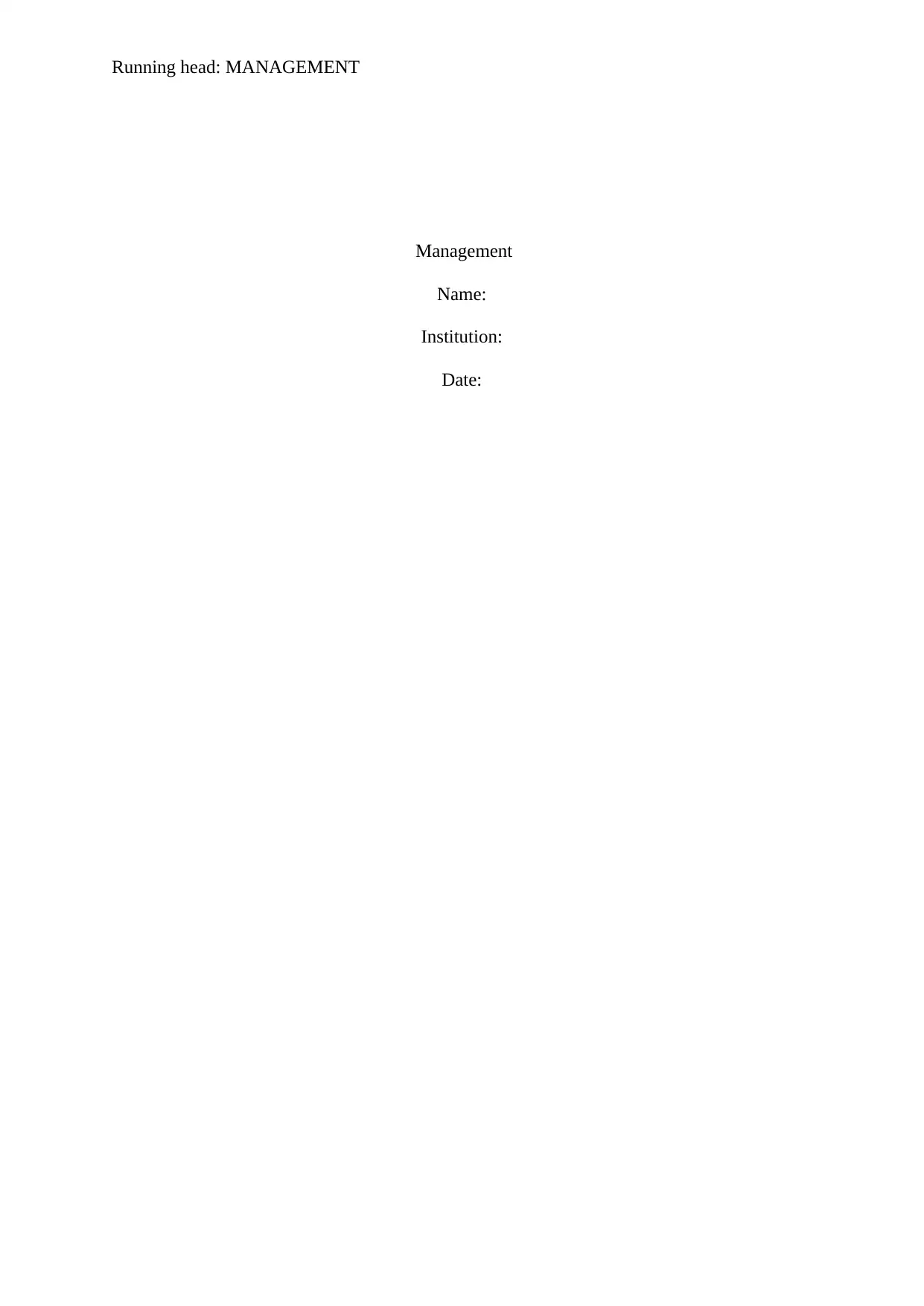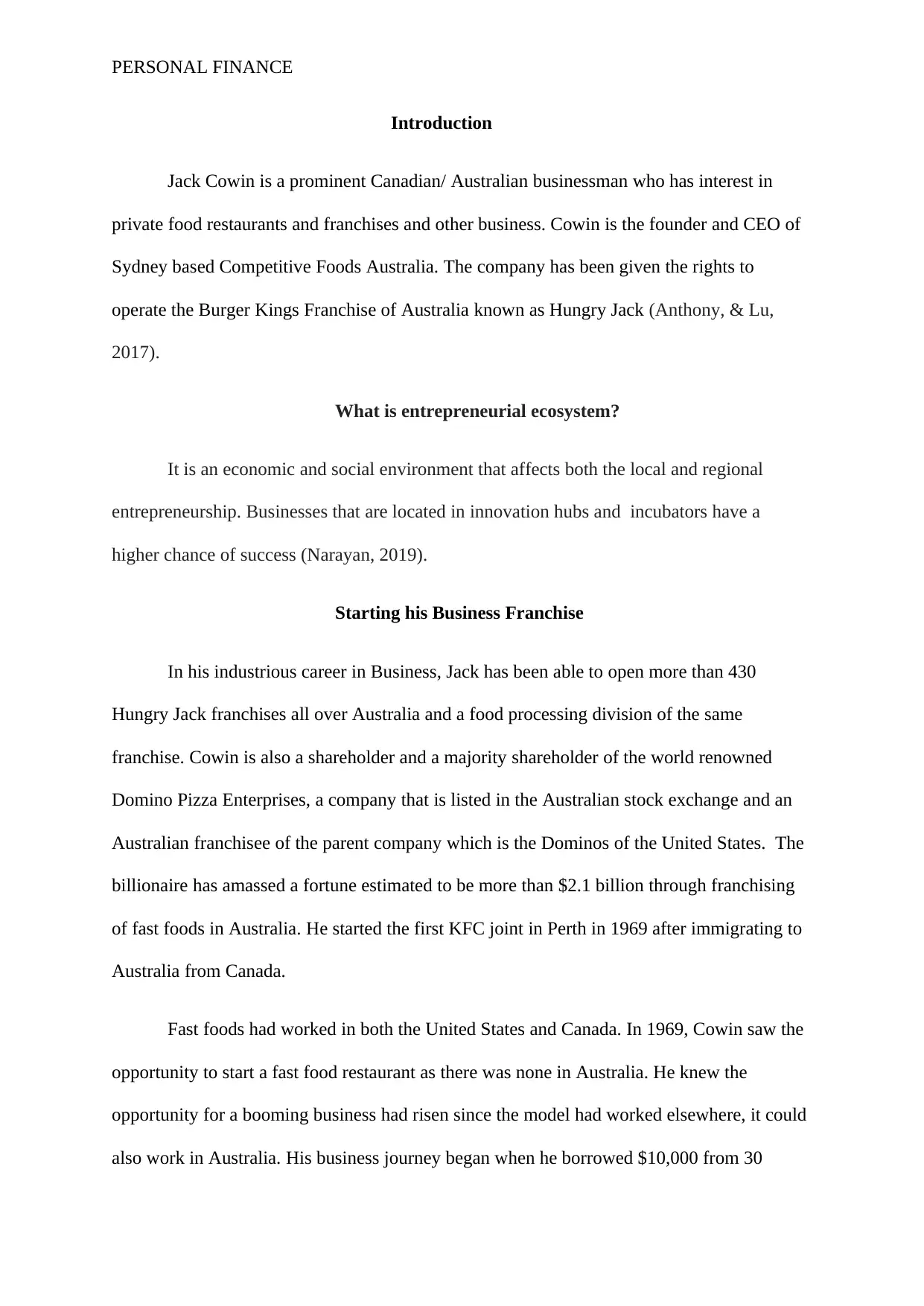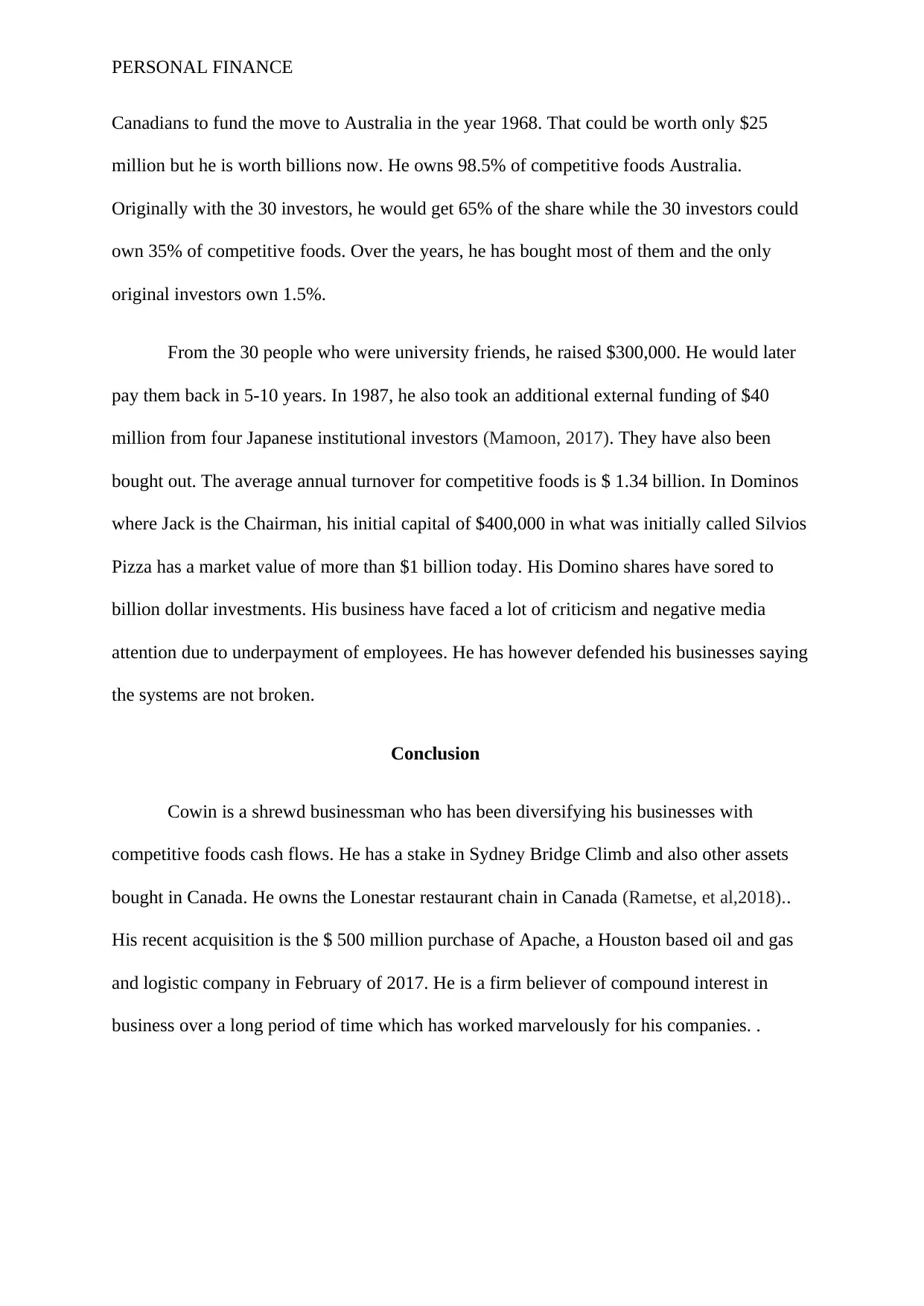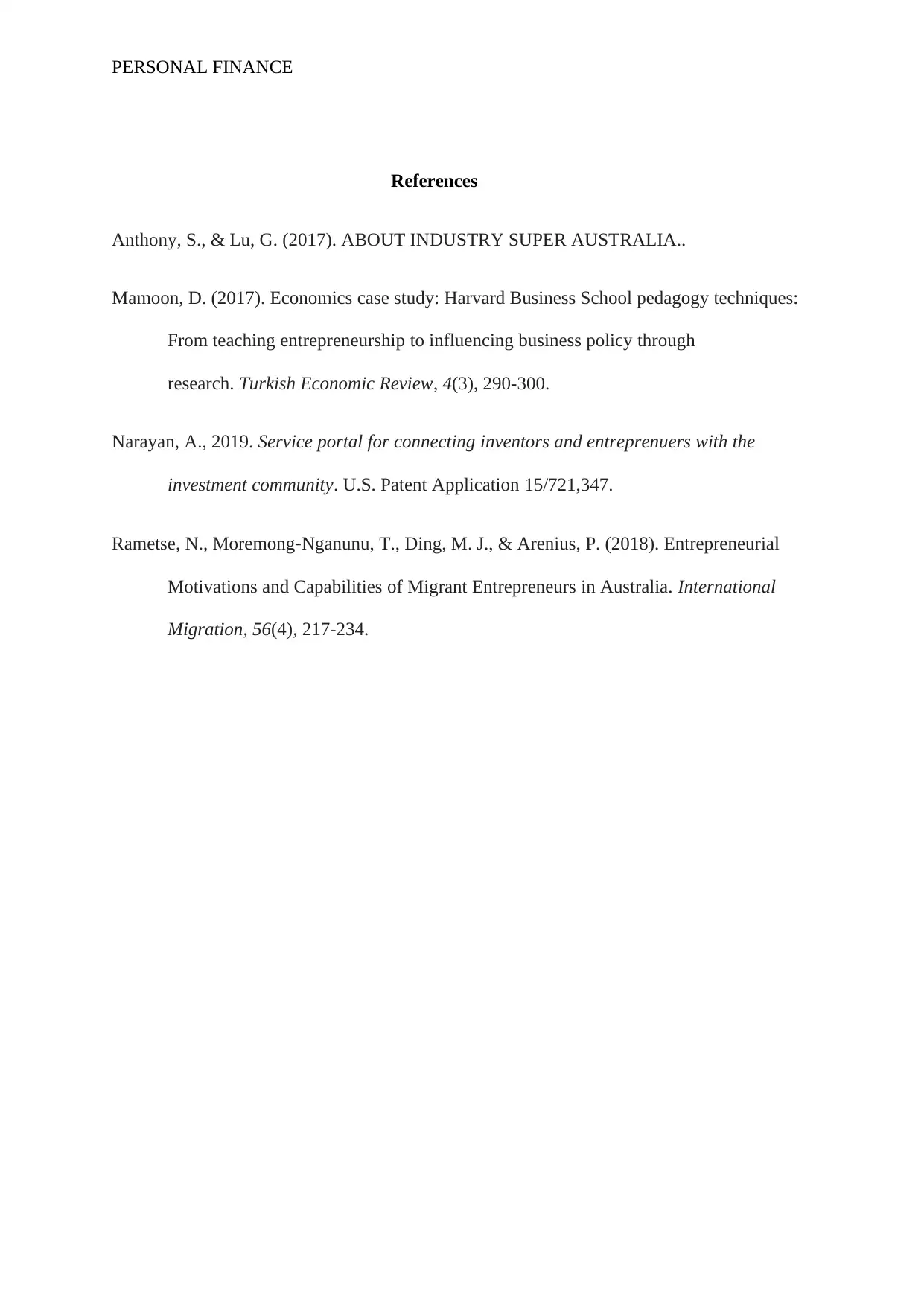Analyzing Jack Cowin's Business Strategies: A Case Study of Success
VerifiedAdded on 2023/01/23
|4
|751
|64
Case Study
AI Summary
This case study examines the entrepreneurial journey of Jack Cowin, a successful Australian businessman. It details his establishment of Competitive Foods Australia, his franchising of Hungry Jack's (Burger King), and his significant stake in Domino's Pizza Enterprises. The study explores his business strategies, including his initial investment, expansion through franchising, and diversification into other ventures. It highlights his financial success, the challenges he faced, such as criticisms over employee underpayment, and his approach to long-term business growth through compound interest. The case study references his acquisition of assets, including the Lonestar restaurant chain and Apache oil and gas, illustrating his approach to business diversification and financial management.
1 out of 4











![[object Object]](/_next/static/media/star-bottom.7253800d.svg)